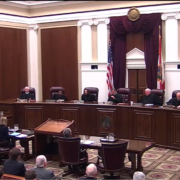Polyamorous “Divorce” in Tampa Bay
More and more people in the Tampa Bay area and beyond are finding themselves in relationships that do not quite fit the traditional mold. Many are in long-term romantic relationships with more than one partner, where the other partners are also in romantic relationships with each other.
These relationships are oftentimes referred to as “polyamorous,” or love involving more than 2 people. Polyamory is not about sex, just as traditional marriage is not about sex, but about the relationship between the partners.
And just as many traditional marriages end in separation, polyamorous relationships can also end in separation. The problem is that the laws and the court system are not built with polyamorists in mind.
And yet, polyamorous partners may face exactly the same issues as those going through divorce: child custody arrangements, division of assets and debts, need for some financial assistance, and child support. Some of those issues, such as child custody and child support, can be decided in the court system, but other issues, such as division of assets and debts and provision of financial assistance, likely could not be equitably decided or even ordered at all.
Further, when you go in a courtroom, you stand before a judge. And what does a judge do? He or she judges. It is in the job title. And it is very uncomfortable having your personal lifestyle picked apart and prodded so that a person who is part of the most traditional of institutions judges your very nontraditional relationship.
But, fortunately, there is an alternative.
The collaborative process is a dispute resolution model where all major decisions are made outside of court. Each party is advised by his and her own attorney who focuses solely on helping the parties reach an agreement; collaborative attorneys are contractually barred from filing any contested court pleadings or fighting against another party in court. This means no money is wasted on preparing for a trial, and all discussions take place in private conference rooms rather than public courtrooms. Attorneys model respectful behavior and are viewed as being part of a team for the family rather than as adversaries.
Further, a neutral facilitator, who oftentimes has a mental health background, is retained to help each partner focus on the future and what is most important to them (i.e., the children) rather than the arguments of the past or rigid positions. They are also a recognition that separations, whether from a traditional marriage or from a polyamorous relationship, are not just a legal process but an emotional process as well.
To ensure financial transparency between the partners and help come up with tailored options for support and division of assets and debts, a neutral financial professional is brought in the process. He or she allows each partner to trust, but verify, and can help each party form a budget to help them get back into single life.
If you have questions about how the collaborative process can help your unique family, schedule a consultation with Family Diplomacy: A Collaborative Law Firm at (813) 443-0615 or by filling out our contact form.
Adam B. Cordover now practices exclusively in out-of-court dispute resolution with a focus on collaborative divorce and family law. Adam is president of Next Generation Divorce, Florida’s largest collaborative practice group. He is also on the Executive Board of the Collaborative Family Law Council of Florida and the Research Committee of the International Academy of Collaborative Professionals.




Leave a Reply
Want to join the discussion?Feel free to contribute!